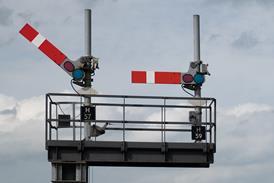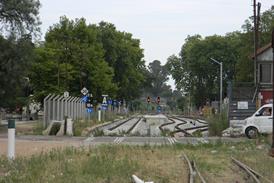BYLINE: Eckhard Kuhla
Ekonsult GmbH, Germany
INTRO: Development of an international information platform will allow all parties involved in cross-border rail freight operations to share data
THE DEMAND for international freight movement in Europe is growing apace - except in the rail mode. There are many reasons for this, but a key element is rail’s failure to invest in advanced information technology at the same rate as other modes. There are still too many incompatible systems developed in parallel by national railways focused on their own local markets.
The rail freight industry must transform itself into an integrated partner, like any other transport provider in the supply chain business. This will require the provision of real-time status information, and the capability to update it. The benchmark is the road transport sector, and it is clear that an ’IT gap’ is opening up.
This information deficit mostly derives from the poor availability of data across borders, with built-in delays and no real-time access. It is a paradox that much of the relevant information, such as train location, already exists, but this is not being supplied to partner operators across a border.
Over the last decade European railway companies have tried hard to close the IT gap, but without any major success. There are many reasons for this: different national software systems, too many interfaces, cultural issues and reliance on manual data input. But the most important failing is that the agreed rules and UIC specifications are not mandatory.
To overcome this problem, through DG TREN the European Union is funding the development of a new information platform based on the latest IT specifications, including internet protocols and message broker systems. The CroBIT (Cross-Border Information Technology) project is being developed by a consortium including UIC, various railway IT departments, the Fraunhofer Institute and software companies. Most of the partners have already adopted best practice in their existing IT, which was a requirement laid down by the EU.
Platform concept
The single platform concept is intended to reduce drastically the number of interfaces required for international data processing. Instead of the traditional bilateral agreements between neighbouring railways, it reduces the information access to a single data channel for every partner. This is not a new idea: the Association of American Railroads’ information technology subsidiary Railinc already operates a similar platform for the US rail industry on a commercial basis.
The CroBIT platform is intended to support both front and back office functions. Front office data is supplied and used by the various partners, including train operators, infrastructure managers, logistic service providers, terminal operators and government authorities (Fig 1). Internet access to the platform will be provided on the basis of a service contract, which will define access rights for each user. Every user will get specified rights from CroBIT, with data input and output protected by different rules, depending on the kind of service contract being paid for.
Data provision is represented by the different product elements within CroBIT, such as:




















